Strictly Personal
Peter Obi: Time to destroy this Temple by Lasisi Olagunju
Published
1 year agoon

There is a trending video of a senile Paul Biya, President of Cameroon, at the just concluded US-Africa Leaders Summit in Washington, DC. He is called to deliver his speech after President Paul Kagame of Rwanda. He comes out, sits down and starts browsing aimlessly through a pamphlet he is holding. He mutters some words to no one in particular. Then he gets up….People who understand the French spoken in the video say the man acted and said things which showed that he was not aware of where he was and why he was there. Eighty-nine-year-old Biya marked 40 years in power last month. He became president of the Republic of Cameroon on November 6, 1982 and has seen the country and its fortune melt progressively like wax set on fire. The man is the country; his son is positioned to be the future. More than 90 percent of Cameroon’s almost 25 million people have known no other president in their entire lives apart from Biya. They call him ‘father.’ You are likely to say Nigeria can never have a Biya who would sit tight here for 40 years. You may be right – and you will be wrong at the same time. Look at those very old men seeking to be our president in 2023. None of them will win and spend forty years on the throne – merciful nature will take care of that for us. But imagine one of the old men, if he wins, and he wills it, subsequently deciding to buy the throne for his thirty-something-year-old son. We will gladly sell out to him because we are always willing to sell. And, if the son is smarter than the dad, he will be there and get our lawmakers to amend the constitution, and buy power from us for himself and his descendants forever. We have enough foolishness, and madness, and the potential – and the structure- to make that happen.
There will be a Biya in Nigeria unless we demolish and reconstruct Nigeria’s house of abuse. Nigeria’s Labour Party’s presidential candidate, Peter Obi, said that much in Akwa Ibom last week: “The structure they have today is what we want to dismantle. It is a structure of criminality,” he lashed out at the establishment people who have forever held the knife and the yam of Nigeria. The big men, especially Obi’s opponents, taunt him repeatedly that he ‘lacks structure’ to translate his mass appeal and mass following to electoral success in the coming poll. And for them, he had bad news. He said the structure his opponents gloated about “is the structure that produced 133 million people living in poverty, 20 million out-of-school children, and made Nigeria surpass India in infant mortality. It is the structure that destroys us; we want to destroy that structure.” He spoke well, very well – the best words he has uttered since the beginning of this contest. There is no doubt about it that the killer-structure deserves to go if we must save ourselves and the country.
Ask computer engineers what to do to fix a bad system. They will tell you that the first fix is to restart your computer. Sometimes restarting demands force. “If it isn’t responding, and you can’t turn it off, then on, try forcing it to restart.” That is the advice from the makers of iPhones. They say so because they are wise. The sensible thing to do when a country is failing, or has failed, is to rework the structure, the parts, including the expansion joints. The pernicious Nigerian structure, if it survives the 2023 elections, will produce more than what Obi said. It will produce leaders worse than Biya – he has a senior, Teodoro Obiang Nguema Mbasogo, the president of Equatorial Guinea; that one has been in power since 1979. How long should an era last? His son is also the heir there. We do not yet have a Biya or an Mbasogo family gnawing at our guts but we have a ruling caste feasting on the heart of the system. They’ve narrowed the route to survival and they man the gates. And it will get worse. So, how do we escape that which is coming? Obi B. Egbuna was a Nigerian novelist, short story writer and playwright. He once wrote that “one way to destroy a people is to allow only the fools to survive.” And who is a fool? Plato has a definition: the one who revels in malicious pleasure. Plato’s teacher, Socrates held that mankind is made up of two kinds of people: wise people who know they’re fools, and fools who think they are wise – we have them as leaders and followers; both have a role to play in the coming contest for the soul of Nigeria.
One of Obi Egbuna’s most popular works is ‘Destroy this Temple’, a book about defiance and decisiveness against decay. I believe he took that book title from the Bible where Jesus Christ saw an abuse of structure and moved against it. Yesterday was Christmas, the festival of celebrations of Jesus’s birth. How many of those who sang and danced in celebration yesterday live their lives like Christ who left here over 2,000 years ago? He was calm and gentle but there was a lone incident where he lost his cool and went physical against abusers of privileges. The Bible has that instructive story that fits this narrative about breaking down and rebuilding a bad system. Men of advantage had ‘abducted’ the space of the Temple in Jerusalem and turned it into “a den of thieves” and “a house of trade” – a structure for sleaze and greed and hightailed loots of the ruling class. Jesus saw it but didn’t just whine and leave. With whip, he expelled the merchants and the money changers. “And Jesus entered the temple and drove out all those who were buying and selling in the temple, and overturned the tables of the money changers and the seats of those who were selling doves” (Mathew 21:12). Bible scholars call this story the cleansing of the Temple narrative. We need a reenactment of this rite in Nigeria. The Nigerian nation is like that Biblical Temple; it has become a haven for bandits and a place of refuge for ‘money changers’ to hold court.
The lesson from the temple story here is that there is no system that cannot be corrupted if the people it serves go to sleep. At the core of that temple incident was money and its corruptive influences. In ‘The Challenge and Spirituality of Catholic Social Teaching’, Marvin L. Mich Krier quotes William Herzog, author of ‘Parables as Subversive Speech’ as arguing that “the Temple cleansing cannot be divorced from the role of the Temple as a bank.” Criminals used “the temple’s outer court to change impure foreign money to temple coins for purchasing sacrificial animals” (Jack Hartjes, 2022). Krier proceeds to further give a scholarly insight into the political economic significance of the Jewish Temple: “In the time of Jesus, the Temple amassed great wealth because of the half-shekel temple tax assessed on each male. Historical evidence supports the fact that large amounts of money were stored in the temple. The temple then was able to make loans on behalf of the wealthy elite to the poor. If the poor were not able to pay their loans, they would lose their land. ‘The temple was, therefore, at the very heart of the system of economic exploitation made possible by monetizing the economy and the concentration of wealth made possible by investing the temple and its leaders with the powers and rewards of a collaborating aristocracy.’ As evidence of this role of temple funds, Herzog notes, ‘it was no accident that one of the first acts of the First Jewish Revolt in 66 C.E. was the burning of debt records in the archives in Jerusalem’ ” (Marvin Krier: 2011).
Just like the Temple in Jerusalem, Nigeria, built with the sweat and blood of all, has become some people’s business empire. It has become a country of public debts for all and private wealth for a select few. The year 2023 is one of decision and desperation. And it is just one blurry week away. We have old presidential candidates, fading and very desperate – because it is their last battle. We have third-force candidates backed by a very desperate youth population, and hordes of the angry poor who talk about taking back their lives from a plundering political elite. What is going to happen? When I heard one of them, Peter Obi, speak in Akwa Ibom with a promise to destroy the structure that has made a fool of honesty in Nigeria, I asked how he was going to do it. Peter Obi told the Nigerian youths: “…you are the next structure. We want to build a better place for our children.” The man obviously has a heart of gold but that is where it ends. Even if he wins, his win will reinforce the pillars of the structure he spoke of destroying. He will be sucked in and initiated fully into the sacred grove of the principalities. So, I think the ultimate solution is the destruction of Nigeria’s faithless temple – using the law. Nigeria is too defective to work. We must employ the law to destroy the temple and create our own “three days” to rebuild it. We need a new temple of justice and fairness to live normal lives.
There are, of course, consequences; every act of cleansing has. Those who inherited the odious structure of Nigeria have a duty to keep it for their descendants even if the country’s 200 million people have to go down in the process. The noose is tightening as the darkness lengthens. The options are not pleasant and are not many. Protests and protestations will amount to nothing in the new year. One of the big presidential candidates told us last week. But good people everywhere must not keep quiet – and must resist being silenced by those who think they alone have a voice. At the same time, we should know that he who chooses to pray for the street madman must not close his eyes. And if you are moving against insanity, your footfall must wear shoes of silence at all times. The world has always been a dangerous place to practise iconoclasm. David Landry, a professor in Theology at the University of St. Thomas, United States, is quoted variously by other scholars as pointing out to us that “within a week” of Jesus fighting the principalities in the Temple, he was dead. Landry cites the disciples, Matthew, Mark, and Luke as agreeing that the Temple cleansing event “functioned as the ‘trigger’ for Jesus’s death.” Krier also tells of these consequences. He points at the book of Mark where Jesus accused the merchants of making the Temple a den of robbers: “And when the chief priests and the scribes heard it, they kept looking for a way to kill him.” Nigeria will not kill us.
Merry Christmas and a Happy 2023.
You may like
-
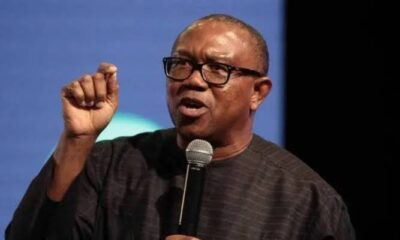

Nigeria has no reason being a poor country, Peter Obi says
-
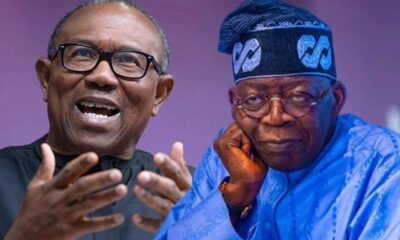

Nigeria: Peter Obi cautions Tinubu against excessive borrowings, tells him to account for past loans
-
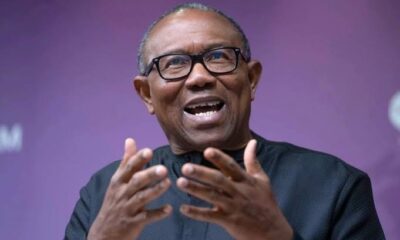

Ukraine’s donation of food aid to Nigeria a national disgrace— Peter Obi
-
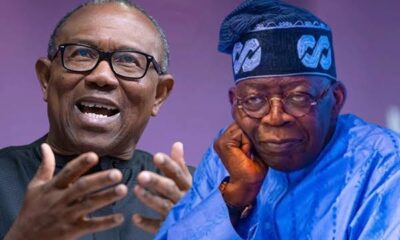

Travel entourage reduction not enough, Obi tells Tinubu
-
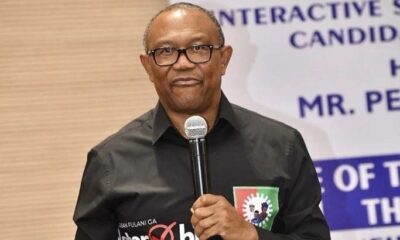

Opposition party’s Peter Obi says democracy the victim of Supreme Court’s election verdict
-
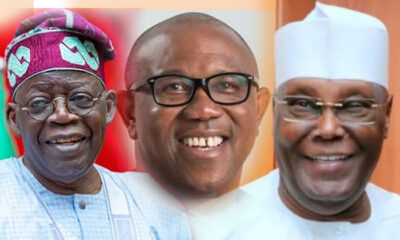

Let’s work together to save Nigeria, President Tinubu urges opposition after court victory
Strictly Personal
Air Peace, capitalism and national interest, By Dakuku Peterside
Published
7 days agoon
April 16, 2024
Nigerian corporate influence and that of the West continue to collide. The rationale is straightforward: whereas corporate activity in Europe and America is part of their larger local and foreign policy engagement, privately owned enterprises in Nigeria or commercial interests are not part of Nigeria’s foreign policy ecosystem, neither is there a strong culture of government support for privately owned enterprises’ expansion locally and internationally.
The relationship between Nigerian businesses and foreign policy is important to the national interest. When backing domestic Nigerian companies to compete on a worldwide scale, the government should see it as a lever to drive foreign policy, and national strategic interest, promote trade, enhance national security considerations, and minimize distortion in the domestic market as the foreign airlines were doing, boost GDP, create employment opportunities, and optimize corporate returns for the firms.
Admitted nations do not always interfere directly in their companies’ business and commercial dealings, and there are always exceptions. I can cite two areas of exception: military sales by companies because of their strategic implications and are, therefore, part of foreign and diplomatic policy and processes. The second is where the products or routes of a company have implications for foreign policy. Air Peace falls into the second category in the Lagos – London route.
Two events demonstrate an emerging trend that, if not checked, will disincentivize Nigerian firms from competing in the global marketplace. There are other notable examples, but I am using these two examples because they are very recent and ongoing, and they are typological representations of the need for Nigerian government backing and support for local companies that are playing in a very competitive international market dominated by big foreign companies whose governments are using all forms of foreign policies and diplomacy to support and sustain.
The first is Air Peace. It is the only Nigerian-owned aviation company playing globally and checkmating the dominance of foreign airlines. The most recent advance is the commencement of flights on the Lagos – London route. In Nigeria, foreign airlines are well-established and accustomed to a lack of rivalry, yet a free-market economy depends on the existence of competition. Nigeria has significantly larger airline profits per passenger than other comparable African nations. Insufficient competition has resulted in high ticket costs and poor service quality. It is precisely this jinx that Air Peace is attempting to break.
On March 30, 2024, Air Peace reciprocated the lopsided Bilateral Air Service Agreement, BASA, between Nigeria and the United Kingdom when the local airline began direct flight operations from Lagos to Gatwick Airport in London. This elicited several reactions from foreign airlines backed by their various sovereigns because of their strategic interest. A critical response is the commencement of a price war. Before the Air Peace entry, the price of international flight tickets on the Lagos-London route had soared to as much as N3.5 million for the economy ticket. However, after Air Peace introduced a return economy class ticket priced at N1.2 million, foreign carriers like British Airways, Virgin Atlantic, and Qatar Airways reduced their fares significantly to remain competitive.
In a price war, there is little the government can do. In an open-market competitive situation such as this, our government must not act in a manner that suggests it is antagonistic to foreign players and competitors. There must be an appearance of a level playing field. However, government owes Air Peace protection against foreign competitors backed by their home governments. This is in the overall interest of the Nigerian consumer of goods and services. Competition history in the airspace works where the Consumer Protection Authority in the host country is active. This is almost absent in Nigeria and it is a reason why foreign airlines have been arbitrary in pricing their tickets. Nigerian consumers are often at the mercy of these foreign firms who lack any vista of patriotism and are more inclined to protect the national interest of their governments and countries.
It would not be too much to expect Nigerian companies playing globally to benefit from the protection of the Nigerian government to limit influence peddling by foreign-owned companies. The success of Air Peace should enable a more competitive and sustainable market, allowing domestic players to grow their network and propel Nigeria to the forefront of international aviation.
The second is Proforce, a Nigerian-owned military hardware manufacturing firm active in Rwanda, Chad, Mali, Ghana, Niger, Burkina Faso, and South Sudan. Despite the growing capacity of Proforce in military hardware manufacturing, Nigeria entered two lopsided arrangements with two UAE firms to supply military equipment worth billions of dollars , respectively. Both deals are backed by the UAE government but executed by UAE firms.
These deals on a more extensive web are not unconnected with UAE’s national strategic interest. In pursuit of its strategic national interest, India is pushing Indian firms to supply military equipment to Nigeria. The Nigerian defence equipment market has seen weaker indigenous competitors driven out due to the combination of local manufacturers’ lack of competitive capacity and government patronage of Asian, European, and US firms in the defence equipment manufacturing sector. This is a misnomer and needs to be corrected.
Not only should our government be the primary customer of this firm if its products meet international standards, but it should also support and protect it from the harsh competitive realities of a challenging but strategic market directly linked to our national military procurement ecosystem. The ability to produce military hardware locally is significant to our defence strategy.
This firm and similar companies playing in this strategic defence area must be considered strategic and have a considerable place in Nigeria’s foreign policy calculations. Protecting Nigeria’s interests is the primary reason for our engagement in global diplomacy. The government must deliberately balance national interest with capacity and competence in military hardware purchases. It will not be too much to ask these foreign firms to partner with local companies so we can embed the technology transfer advantages.
Our government must create an environment that enables our local companies to compete globally and ply their trades in various countries. It should be part of the government’s overall economic, strategic growth agenda to identify areas or sectors in which Nigerian companies have a competitive advantage, especially in the sub-region and across Africa and support the companies in these sectors to advance and grow to dominate in the African region with a view to competing globally. Government support in the form of incentives such as competitive grants ,tax credit for consumers ,low-interest capital, patronage, G2G business, operational support, and diplomatic lobbying, amongst others, will alter the competitive landscape. Governments and key government agencies in the west retain the services of lobbying firms in pursuit of its strategic interest.
Nigerian firms’ competitiveness on a global scale can only be enhanced by the support of the Nigerian government. Foreign policy interests should be a key driver of Nigerian trade agreements. How does the Nigerian government support private companies to grow and compete globally? Is it intentionally mapping out growth areas and creating opportunities for Nigerian firms to maximize their potential? Is the government at the domestic level removing bottlenecks and impediments to private company growth, allowing a level playing field for these companies to compete with international companies?
Why is the government patronising foreign firms against local firms if their products are of similar value? Why are Nigerian consumers left to the hands of international companies in some sectors without the government actively supporting the growth of local firms to compete in those sectors? These questions merit honest answers. Nigerian national interest must be the driving factor for our foreign policies, which must cover the private sector, just as is the case with most developed countries. The new global capitalism is not a product of accident or chance; the government has choreographed and shaped it by using foreign policies to support and protect local firms competing globally. Nigeria must learn to do the same to build a strong economy with more jobs.
Strictly Personal
This is chaos, not governance, and we must stop it, By Tee Ngugi
Published
2 weeks agoon
April 10, 2024
The following are stories that have dominated mainstream media in recent times. Fake fertiliser and attempts by powerful politicians to kill the story. A nation of bribes, government ministries and corporations where the vice is so routine that it has the semblance of policy. Irregular spending of billions in Nairobi County.
Billions are spent in all countries on domestic and foreign travel. Grabbing of land belonging to state corporations, was a scam reminiscent of the Kanu era when even public toilets would be grabbed. Crisis in the health and education sectors.
Tribalism in hiring for state jobs. Return of construction in riparian lands and natural waterways. Relocation of major businesses because of high cost of power and heavy taxation. A tax regime that is so punitive, it squeezes life out of small businesses. Etc, ad nauseam.
To be fair, these stories of thievery, mismanagement, negligence, incompetence and greed have been present in all administrations since independence.
However, instead of the cynically-named “mama mboga” government reversing this gradual slide towards state failure, it is fuelling it.
Alternately, it’s campaigning for 2027 or gallivanting all over the world, evoking the legend of Emperor Nero playing the violin as Rome burned.
A government is run based on strict adherence to policies and laws. It appoints the most competent personnel, irrespective of tribe, to run efficient departments which have clear-cut goals.
It aligns education to its national vision. Its strategies to achieve food security should be driven by the best brains and guided by innovative policies. It enacts policies that attract investment and incentivize building of businesses. It treats any kind of thievery or negligence as sabotage.
Government is not a political party. Government officials should have nothing to do with political party matters. They should be so engaged in their government duties that they literally would not have time for party issues. Government jobs should not be used to reward girlfriends and cronies.
Government is exhausting work undertaken because of a passion to transform lives, not for the trappings of power. Government is not endless campaigning to win the next election. To his credit, Mwai Kibaki left party matters alone until he had to run for re-election.
We have corrupted the meaning of government. We have parliamentarians beholden to their tribes, not to ideas.
We have incompetent and corrupt judges. We have a civil service where you bribe to be served. Police take bribes to allow death traps on our roads. We have urban planners who plan nothing except how to line their pockets. We have regulatory agencies that regulate nothing, including the intake of their fat stomachs.
We have advisers who advise on which tenders should go to whom. There is no central organising ethos at the heart of government. There is no sense of national purpose. We have flurries of national activities, policies, legislation, appointments which don’t lead to meaningful growth. We just run on the same spot.
Tee Ngugi is a Nairobi-based political commentator
EDITOR’S PICK


Nigerian govt shuts Chinese supermarket over ‘no-Nigerian shopper’ allegation
Nigeria’s Federal Competition and Consumer Protection Commission has shut down a Chinese store in Abuja, the country’s capital, because it...
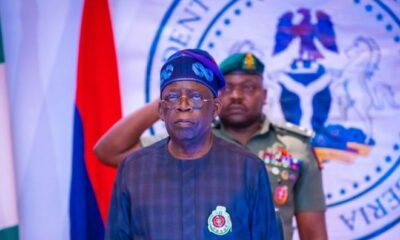

Nigeria: President Tinubu identifies illegal mining as source of terrorism financing
Nigeria’s President Bola Tinubu has identified illegal mining activities as a major source of terrorism financing in the country and...


Nigeria wants $2.25 billion World Bank loan
Nigeria’s Finance Minister, Wale Edun, has revealed that the country is seeking up to $2.25 billion in World Bank loans...
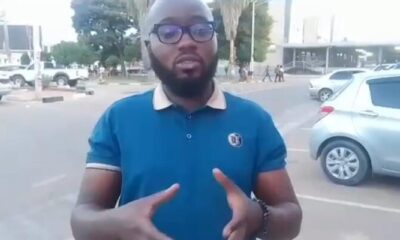

‘Complex, contentious,’ media enthusiast says media rights often depend on goodwill of political leadership (video)
Kitwe Press Club spokesperson, Michael Kaluba, has described the media landscape in Zambia as complex and contentious. In a conversation...


UN signs MoU with Kenya’s Konza Technopolis
The United Nations has signed a Memorandum of Understanding (MoU) with Kenya’s Konza Technopolis that will provide a wide range...


Ghana mourns as top gospel music icon Koda passes away
The Ghanaian entertainment industry has, once again, been thrown into mourning following the death of renowned gospel musician, Kofi Owusu...


South African club admits they can’t keep Nwabali
Chairman of South African club side, Chippa United, Siviwe ‘Chippa’ Mpengesi, has given up on retaining the services of Super...


Chinsali youth advocates broadening of access to information to impact rural areas
Joseph Mulenga, a 24-year-old carpenter from Chinsali District in Muchinga Province, has spoken on the necessity of broadening access to...
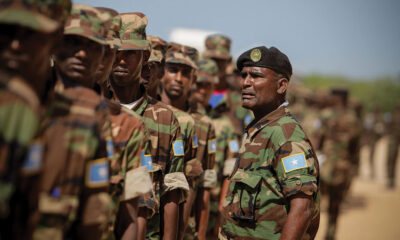

African leaders seek change in fight against terrorism at Nigerian summit
At a security summit in Nigeria, African leaders have called for a revamp of institutions that fight violent extremism on...


Visually-impaired community calls for institutional support to overcome challenges of access to information
Machisa Zimba, Coordinator of Community Based Inclusive Development Network (CBID) for the visually impaired, sheds light on the challenges hindering...
Trending
-

 Metro2 days ago
Metro2 days agoYoruba secessionist group seeks exit from Nigeria, writes open letter to Tinubu
-

 Tech2 days ago
Tech2 days agoKenya’s agri-tech startup Pula raises $20m funding for farmers’ insurance
-

 Sports2 days ago
Sports2 days agoKenya’s Peres Jepchirchir fulfils promise of breaking world record at London Marathon
-
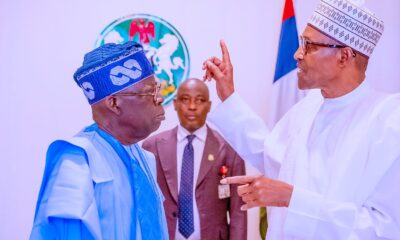
 VenturesNow2 days ago
VenturesNow2 days agoNigeria: Unlike Buhari, Tinubu’s govt has not borrowed from the central bank— Finance Minister


